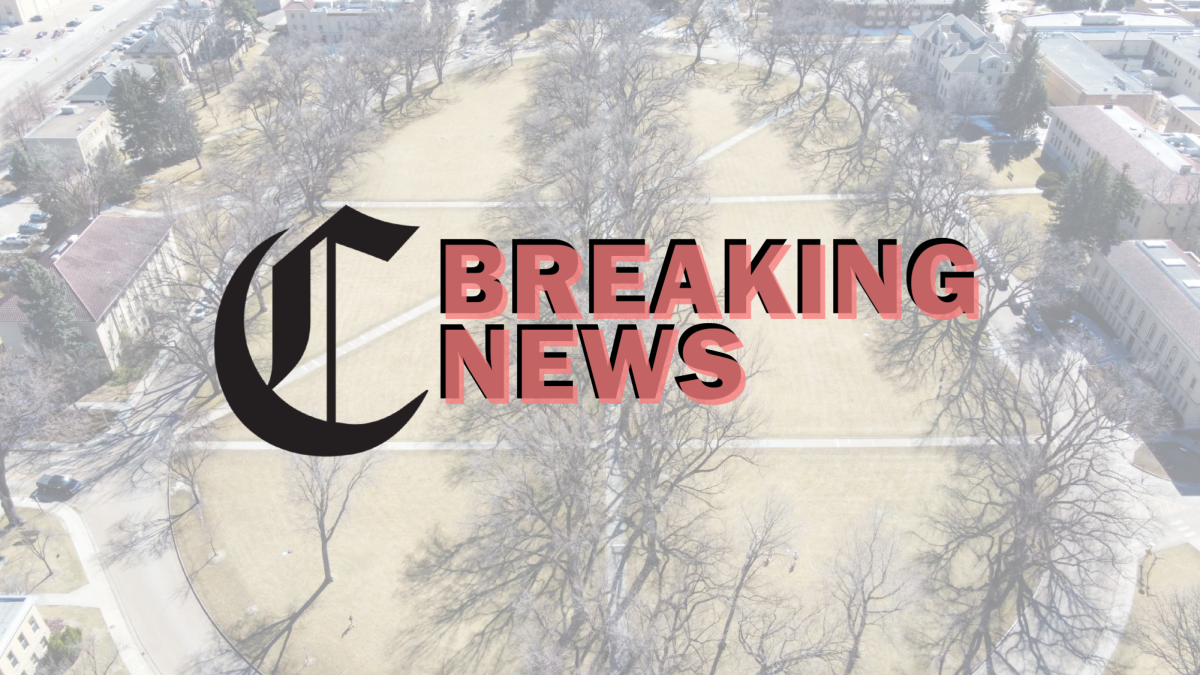Colorado State University’s Democracy Summit has begun, featuring compelling speakers, stories and engaging events open to students and the public.
The Indigenous Governance Traditions: Native Nationhood, Sovereignty and Democracy discussion was held at the Lory Student Center April 9. Speakers Allison Neswood and Jordan Dresser covered topics of voting, reparations and past and present government policies.
Ad
The LSC Longs Peak Room was full with staff, students and public attendees as Dresser was introduced and began his presentation. Dresser is a member of the Northern Arapaho Tribe, located on the Wind River Reservation in Wyoming. He served as chairman 2020-22 and also creates films surrounding Indigenous topics and injustices.
As a former chairman, Dresser has engaged with democracy directly. He noted how the political systems on the Wind River Reservation are resolution based and a majority of opinion is required for resolutions to be passed.
“It is difficult because you’re presenting for a whole group of people who have a just as equal stake as everybody else,” Dresser said. “And they all have to come to agreement. Sometimes, the answer’s no. And you just take it as it goes. But the key thing is I think everybody’s got to make informed decisions about what they want to do next.”
Gaming, hunting, oil and gas were also brought up by Dresser as an example of how democracy and sovereignty work together. A recent success in 2020 was the expiration of leases on oil and gas.
“It was basically broke down to 80-20, meaning that the oil companies (got) 80% (of revenue); the tribes (got) 20%,” Dresser said. “And so the tribes were locked into these deals for a long time.”
Neswood is a staff attorney with the Native American Rights Fund and spoke after Dresser. Neswood continued the discussion with her presentation focused on how American systems and individuals disenfranchise Native Americans.
Three categories were identified by Neswood on the disenfranchisement of Indigenous people: structural factors, contemporary bias and racism and voting policies.
Structural factors include identity documents, travel to ballot locations, mailing addresses and high poverty rates. Neswood also said bias and racism from American society impact Native Americans’ engagement in voting.
“These beliefs and assumptions about Native people underlie official decisions about how to allocate election resources, and as a result, they reinforce systems that exclude Native people, and that send a message that we’re not welcome to participate,” Neswood said.
Ad
Policies that limit the ability for Indigenous people to vote include a lack of polling locations on tribal land and redistricting procedures that limit the representation from votes.
“NARF has been involved in multiple redistricting lawsuits, … identifying where the lines were drawn unfairly for native voters and mitigating those really fact intensive cases,” Neswood said.
The event concluded with a Q&A with Taylor Means, a senior studying sociology and Indigenous studies, presenting the questions. Means asked why Indigenous democracy matters to everyone.
“It matters because it’s the earliest form of government that’s on this land,” Dresser said. “You know, tribes have their way of doing things, and I think sometimes that it has a larger society. If we went back to those different things, I think that we will learn more about how to, No. 1, navigate and truly represent the people that you all have and also, No. 2, how to be sustainable for future generations.”
Means is working on research with ethnic studies Associate Professor Doreen Martinez, the moderator of the event.
“(The event is) important because Indigenous voices don’t always have a space here,” Means said. “Institutions in general — I think CSU, specifically, is going in the right direction because this is a great way for our school to hear student voices and professional Native voices on what they think of this democracy in their perspective.”
CSU is a land-grant institution and acknowledges the reality that the university resides on the homelands of the Arapaho, Cheyenne and Ute nations and people.
Reach Cadence Cardona at news@collegian.com or on Twitter @CSUCollegian.














